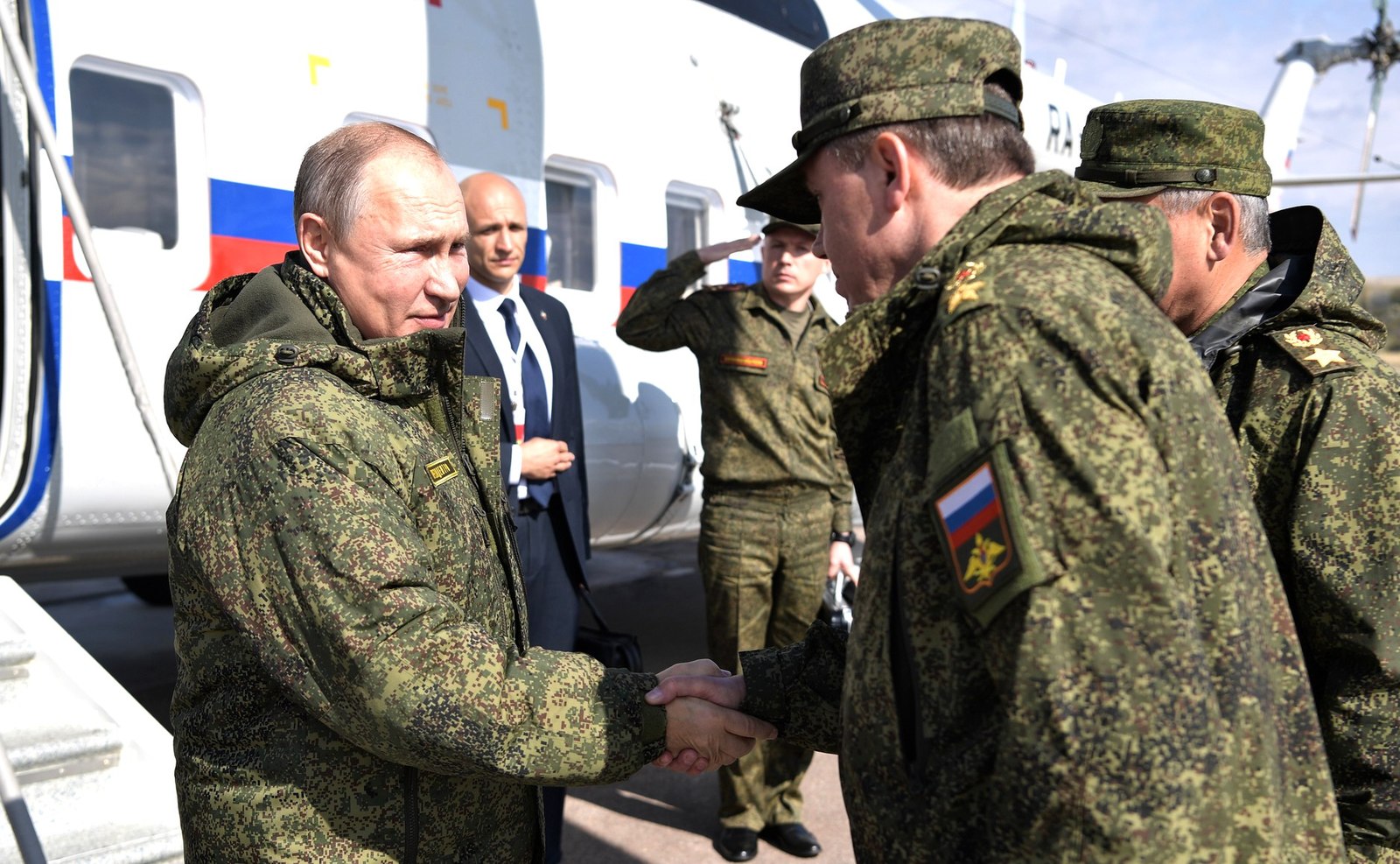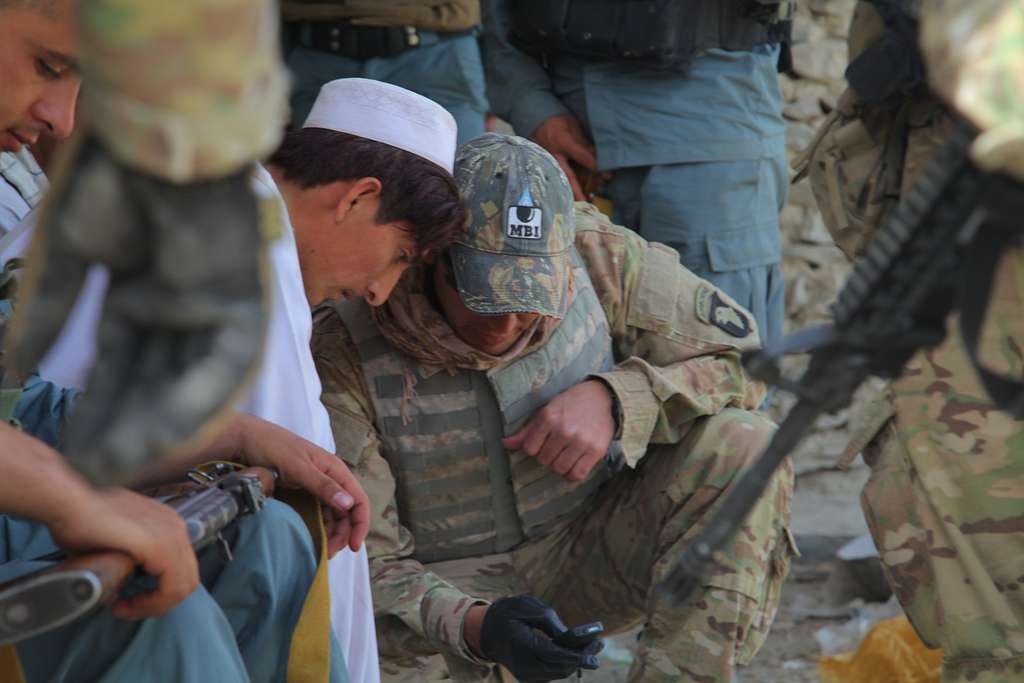Congress Needs to Amend the War Crimes Act of 1996
Congress needs to immediately amend the War Crimes Act to align federal criminal jurisdiction over war crimes with the international law concept of universal jurisdiction.

Published by The Lawfare Institute
in Cooperation With

As nations and peoples around the world watch with dismay and disgust as Russian aggression plows ahead in Ukraine, national leaders are seeking to carefully calibrate all the levers of national security power: diplomatic, intelligence and information, military, and economic powers (commonly characterized by the pneumonic DIME). At this time of crisis, these powers are being leveraged to support Ukraine and deter further Russian aggression. But at some point those responsible for the violations of international law that we are already witnessing—like attacks on civilians that seem undeniably deliberate and indiscriminate—should be subject to individual accountability. For that, nations must be prepared to invoke a different power: the power of criminal sanction.
Sadly, the United States will be hamstrung in imposing such accountability if it ever has the opportunity to do so. This is because the United States’ domestic war crimes law, the War Crimes Act of 1996 (as amended), has never been fully aligned with the nation’s obligations pursuant to the four Geneva Conventions of 1949 to enact domestic legislation establishing jurisdiction over any individual suspected of committing a grave breach of these universally adopted humanitarian law treaties.
Given that misalignment, Congress needs to immediately amend the War Crimes Act to align federal criminal jurisdiction over war crimes with the international law concept of universal jurisdiction. Universal jurisdiction is a principle of international law that permits all nations to invoke jurisdiction over individuals alleged to have committed especially heinous violations of international law. Because such violations render the perpetrator hostis humani generis—an enemy of all mankind—every nation shares an equal interest in and right to use its domestic criminal courts to impose accountability. And importantly, that accountability is not limited to the lower-level soldiers who directly commit war crimes. Instead, pursuant to the doctrine of command and superior accountability, it extends to all those in the chain of command who knew or reasonably should have known such crimes were being or were likely to be committed. Such leaders cannot escape criminal responsibility for the derelictions of their subordinates by engaging in willful blindness.
To be clear, such an amendment will not result in the immediate prosecution of alleged war criminals. But this does not negate the importance of expanding the statute’s jurisdiction. Such an expansion will have an immediate symbolic effect, and a potentially practical effect in the future. By embracing the universal jurisdiction that the United States had committed to implementing when it ratified the Geneva Conventions, Congress will signal U.S. commitment to measures intended to deprive the worst war criminals of impunity for their crimes. The practical impact may be somewhat diminished from an amendment, but it is not insignificant. First, even if alleged war criminals are beyond the reach of U.S. prosecutors, the prosecutors may nonetheless seek indictments and in so doing place the suspects on notice that they will always be at risk of prosecution in a U.S. court. This practice is not unprecedented. For example, federal prosecutors indicted Osama bin Laden with little expectation of bringing him into U.S. jurisdiction, and more recently they did the same with members of the Russian GRU for illegal cyber activities. Second, there is no way to predict if and when such an individual may be found within the territory of the U.S., and if that did occur, this amendment would empower federal prosecutors to leverage the criminal power of the nation to impose accountability.
This concept of universal jurisdiction is reflected in what are known as the grave breach provisions of the four Geneva Conventions of 1949. These treaties—each of which is devoted to the humanitarian protection of a different category of war victims (the wounded and sick; the wounded, sick, and shipwrecked at sea; prisoners of war; and civilians under enemy control)—define the most serious violations of their provisions as grave breaches. This is significant, because state parties to the treaties—which include all states—commit to enact domestic law to prosecute any individual within their national jurisdiction suspected of having committed such a grave breach. For example, Article 129 of the Third Convention (protecting prisoners of war) provides:
The High Contracting Parties undertake to enact any legislation necessary to provide effective penal sanctions for persons committing, or ordering to be committed, any of the grave breaches of the present Convention defined in the following Article.
Each High Contracting Party shall be under the obligation to search for persons alleged to have committed, or to have ordered to be committed, such grave breaches, and shall bring such persons, regardless of their nationality, before its own courts. It may also, if it prefers, and in accordance with the provisions of its own legislation, hand such persons over for trial to another High Contracting Party concerned, provided such High Contracting Party has made out a prima facie case.
When I first taught this subject at the U.S. Army Judge Advocate General’s Legal Center and School, we referred to this as the “prosecute or extradite” obligation and explained to students that the lack of a federal criminal statute providing jurisdiction over war criminals discovered in the U.S. would give the U.S. only one option to comply with the grave breach provision: extradite the individual to another country willing and able to prosecute. Of course, the obligation does not provide the U.S. the option of enacting legislation or extraditing; it presupposes such legislation has been enacted and offers extradition as an alternative option.
In 1996, Congress took up the matter and enacted the War Crimes Act, 18 U.S. Code § 2441. During the drafting process, the Department of State recommended to Congress that it align the jurisdiction established by this new law with universal jurisdiction and, in so doing, fully implement the treaty obligation.
But Congress chose to ignore this recommendation. Instead, Congress restricted jurisdiction to only those war crimes committed by or against a U.S. national. As a result, Congress deprived federal prosecutors of the authority to prosecute suspected war criminals discovered in the United States so long as they and their victims were aliens when their crimes were committed.
This rejection of universal jurisdiction was likely due to trepidation about endorsing a theory of jurisdiction that could be invoked to prosecute U.S. military personnel (and perhaps civilian political leaders) in foreign courts for alleged offenses having no connection with the foreign nation. But refusing to fully implement the United States’ treaty obligation would in no way invalidate the invocation of such jurisdiction by other states, states that already fully embrace the concept of universal jurisdiction through domestic laws that establish jurisdiction over any person alleged to have committed serious violations of international law. Instead, it symbolizes a U.S. hesitation to recognize the logic of this principle of individual responsibility for violations of international law and undermines the goal of the concept: to put the worst war criminals on notice that their violations of international law will always be within the reach of every nation in the world.
No one can predict how the conflict in Ukraine will evolve, or end. Nor can anyone predict if, when and where the United States might discover a participant whose wartime conduct qualified as a grave breach or some other especially heinous violation of the laws and customs of war. But the international community already knows that Russian military forces are launching indiscriminate attacks on civilians and civilian property. Unless Congress amends the War Crimes Act to align it with universal jurisdiction, federal authorities would have unnecessarily limited options to demonstrate U.S. rejection of impunity for such war crimes and to ensure such individuals face accountability for their crimes if and when the opportunity for federal prosecution arises.




